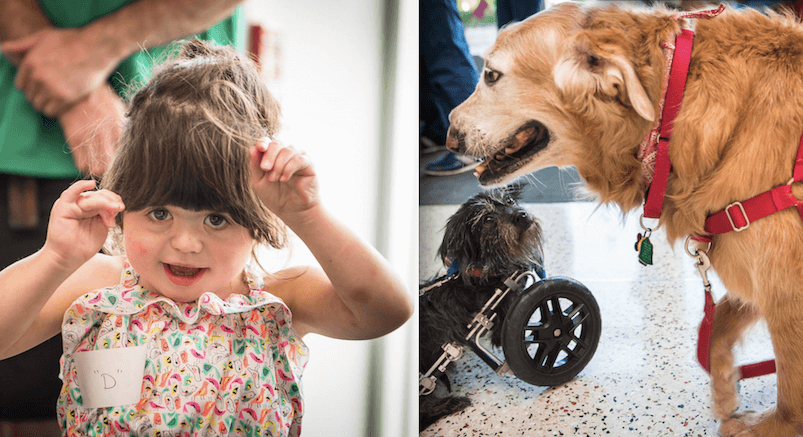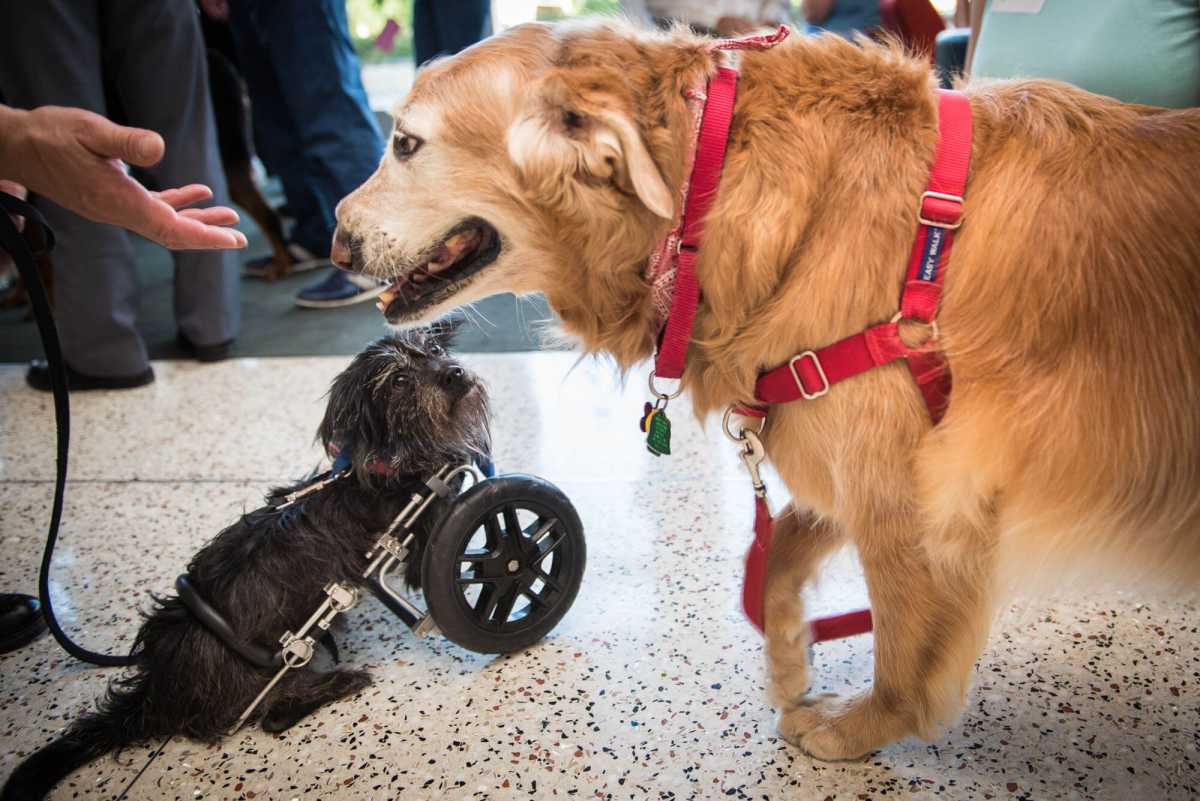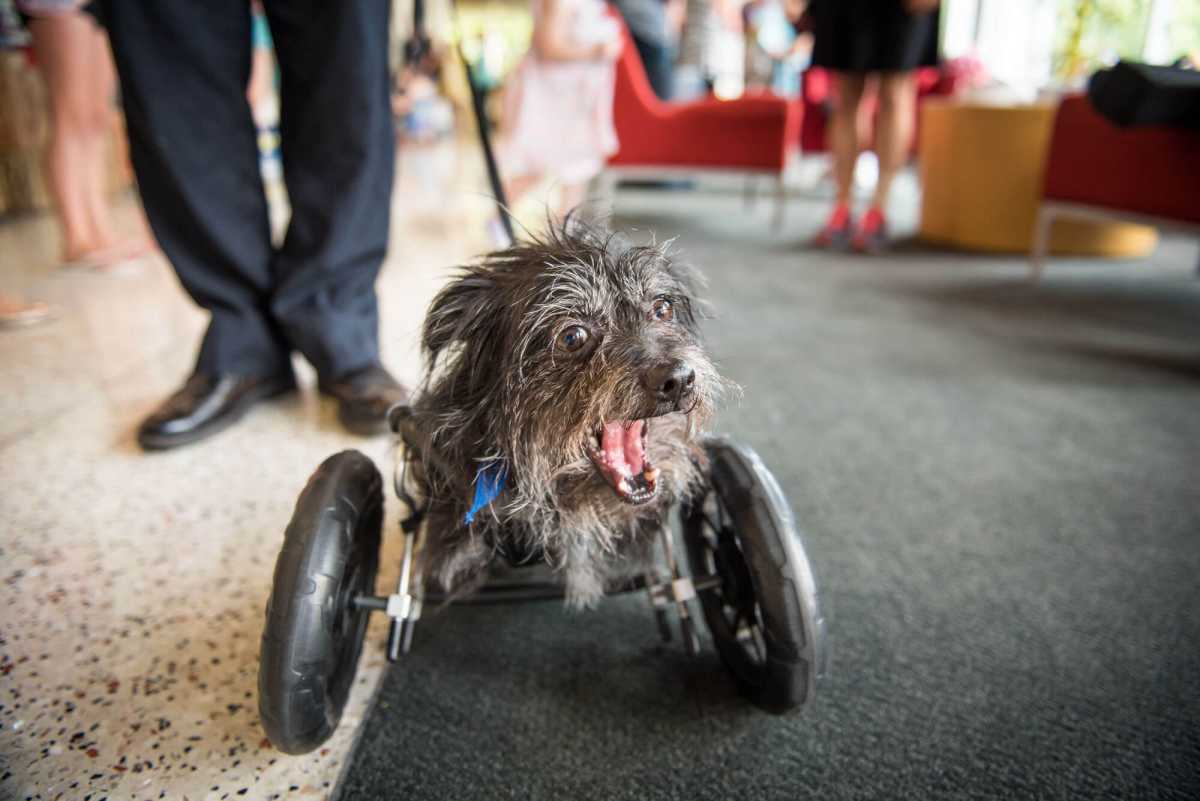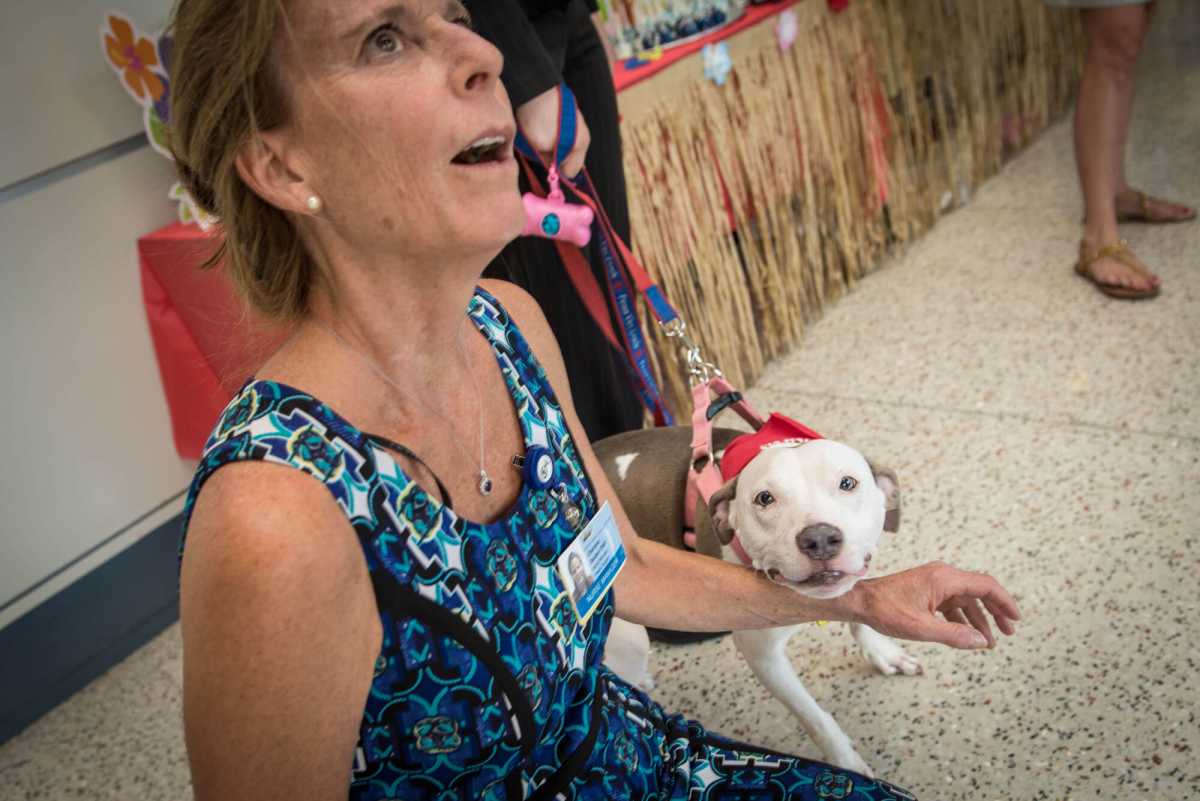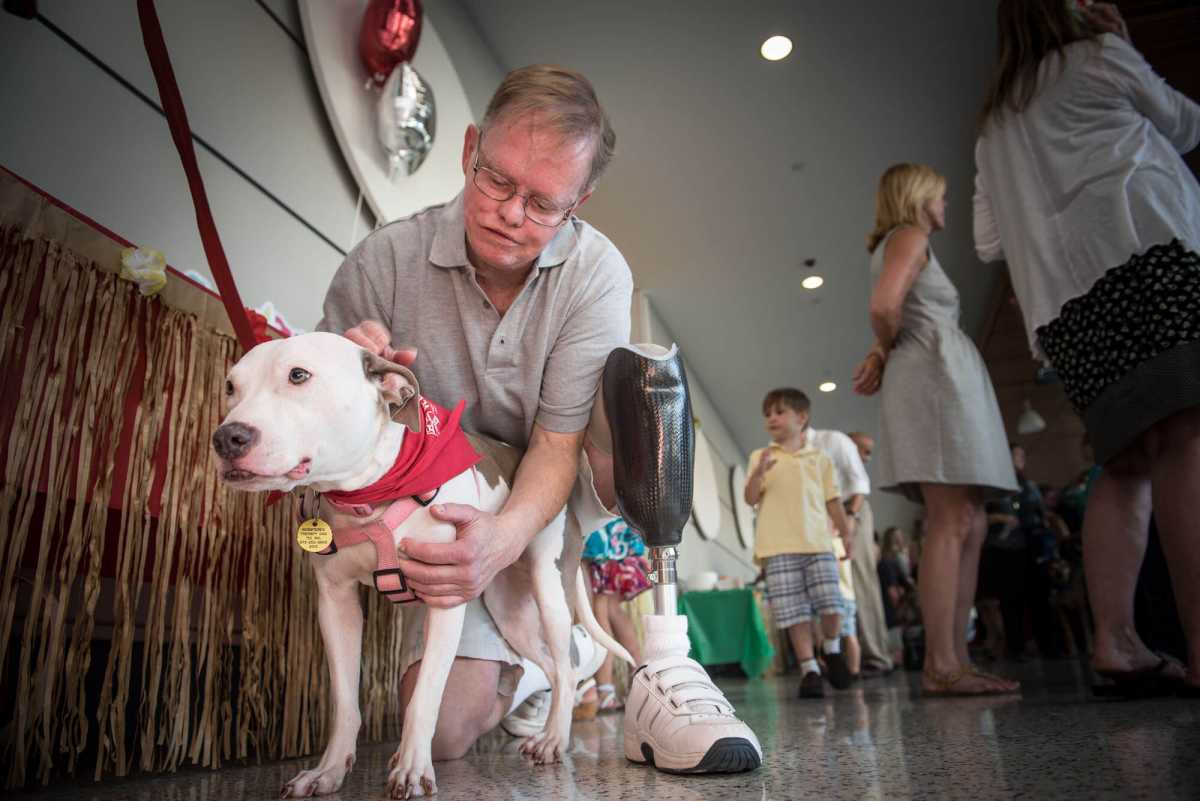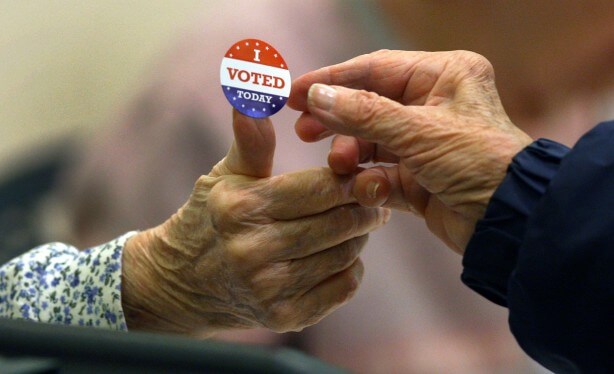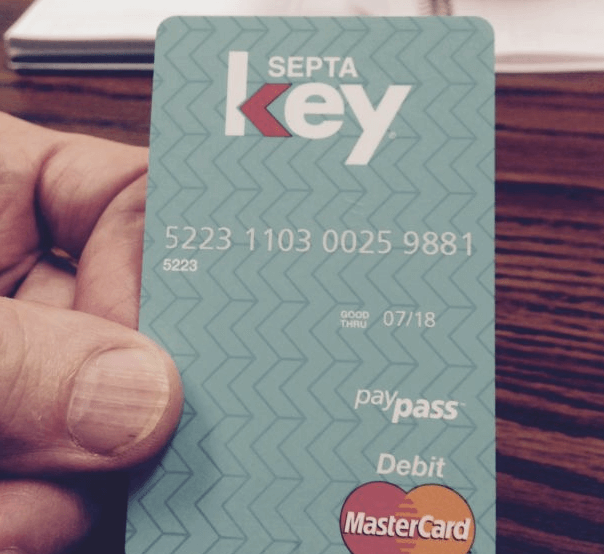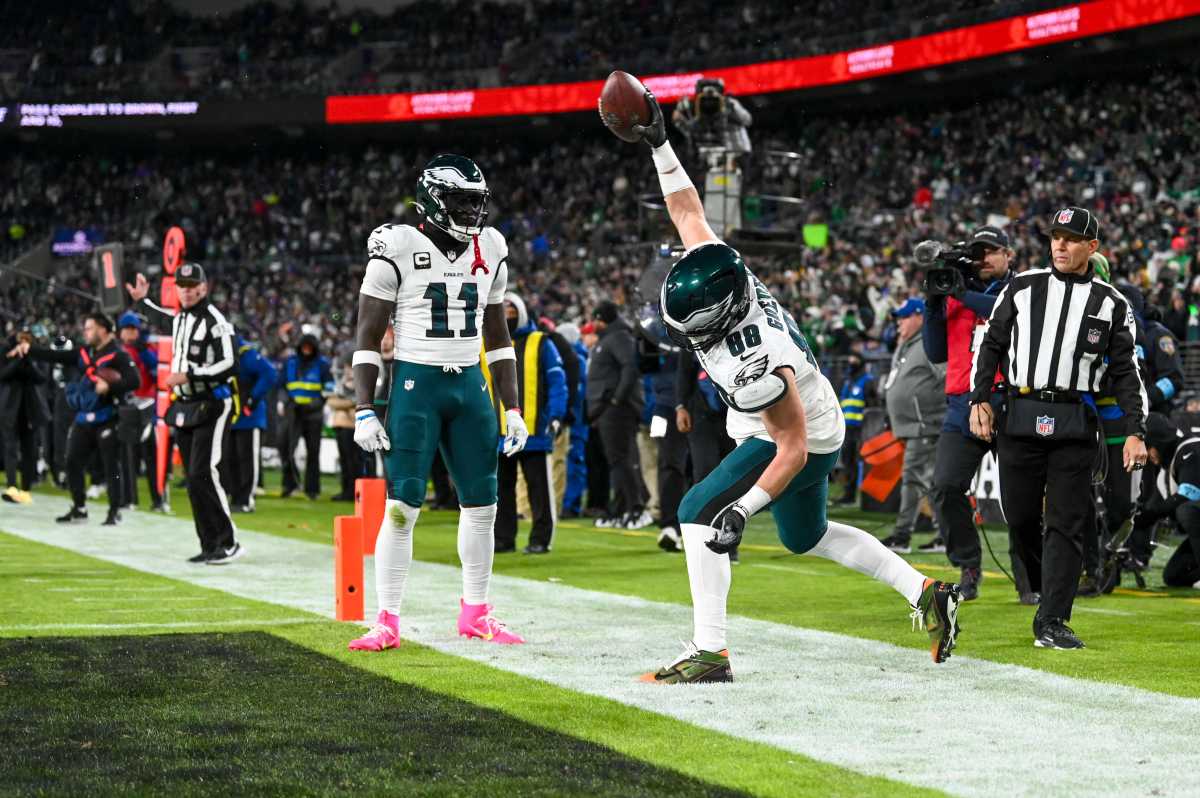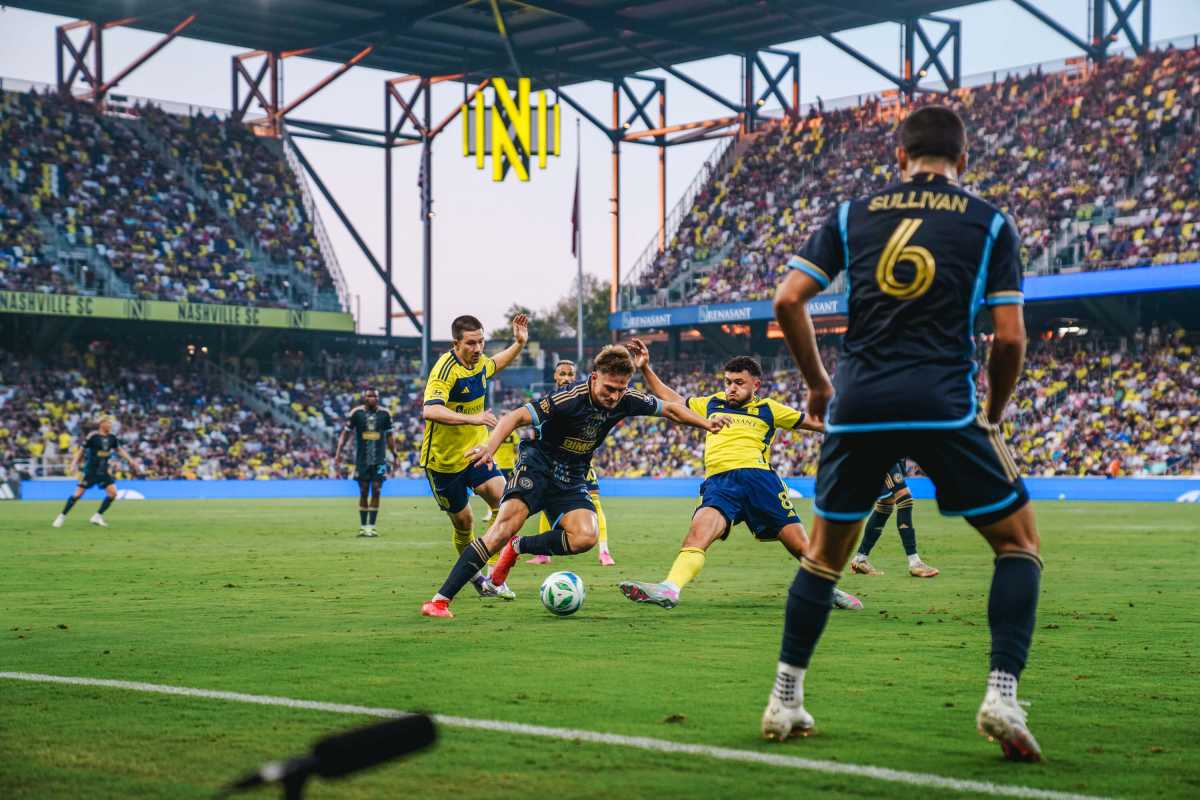Ian Linn has always felt a kinship with the dogs he’s come to meet every year.
He’s 14, and he has a rare condition that has left some of the muscles in face partially paralyzed.
On Wednesday, he was one of more than a dozen patients from the Children’s Hospital of Philadelphia suffering from cranio-facial differences who who got to party with dogs from Penn Vet that have similar conditions. It was an event the Masterman High School student said he looks forward to every year. To him, it was all about meeting the dogs.
The Best Friends Bash started as a way to help these kids — many of them suffering from head and face differences that require multiple operations — find a way to talk about going under the knife. “It’s much easier to to talk about a dog’s surgery than a kid’s surgery,” said CHOP Clinical Psychologist Leanne Magee.
But over time — this is its third year — it has evolved into a way for families with similar experiences to connect with one another.But yeah, it’s a party too.
“It’s the chaos you expect when you see dogs and kids together,” Magee said.
It is also part of the enduring legacy of a French Bulldog named Lentil, whose tiny size and cleft pallet made him an internet sensation after is owner, Lindsay Condefer began a fundraising campaign to raise money for his corrective surgery. “Each time time this little dog would eat or drink something, the food would go int the nose,” said Dr. Alexander Reiter, head of Dentistry and Oral Surgery Penn Vet.
His surgery got doctors at CHOP and the vet school talking, and that led to a the pairing of pups — human and canine.
Jessica Barbalaci, 21, has had eight surgeries to correct a cleft lip. She wishes the Best Friends’ Bash was around when she was a young patient.
“It’s comforting to see that they’ve had the same issues,” Barbalaci said.
The dogs get something out of it too, Reiter said.
“Getting attention is the greatest reward for any dog,” Reiter said.
For Linn, whose condition is called Moebius Syndrome, his favorite dog was Emma, a 10-year-old Golden Retreiver whose nose pointed slightly down after lost two-thirds of her upper jaw in a surgery to remove a tumor. Erin Johnson, Emma’s owner, said the retriever’s story helps kids relate.
“Kids are really interested in what she can still do, which includes catching tennis balls.”



